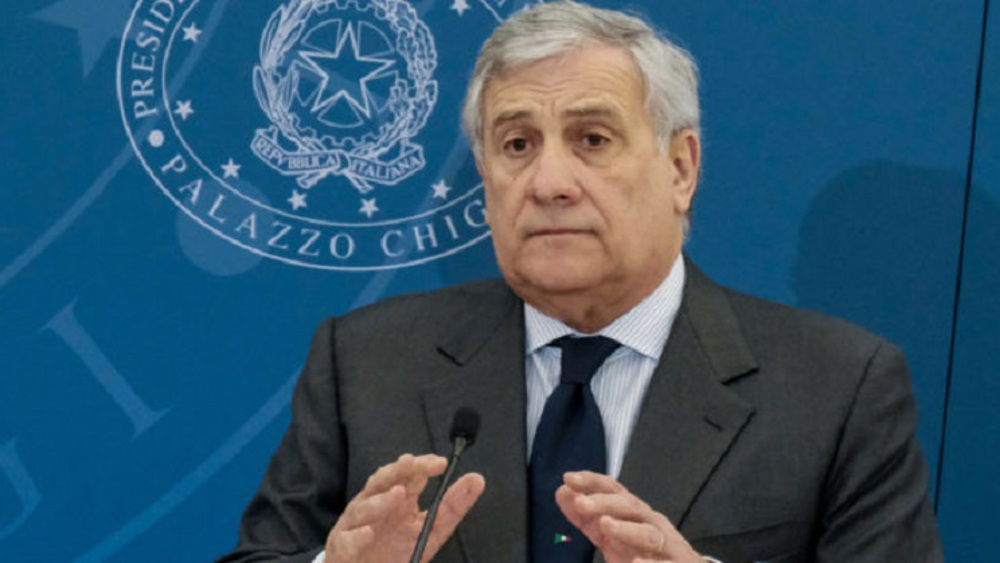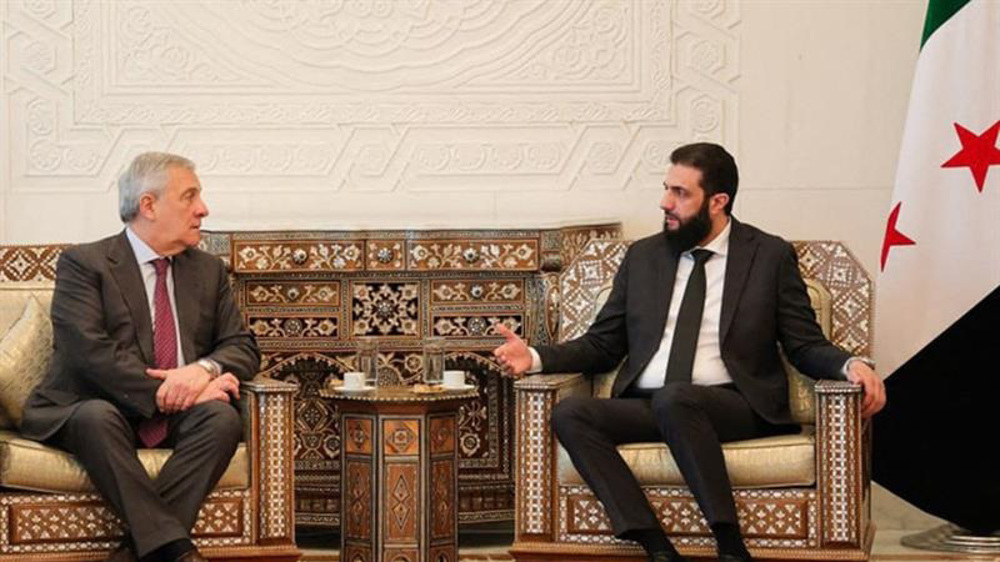Fierce clashes erupt in Greece’s north over Macedonia pact
Fierce clashes have erupted in the northern Greek city of Thessaloniki where thousands of protesters have used a trip to the city by Prime Minister Alexis Tsipras to protest his government’s signing of a controversial pact to allow neighboring Macedonia to become a republic with the very name that could undermine Greece’s territorial integrity.
Reports said some 15,000 people attended the protest on Saturday which turned violent and prompted police to use tear gas to disperse protesters.
Scores of individuals broke away from a main group of demonstrators and hurled stones at riot police as they were nearing a commercial park where an annual trade fair was taking place with Tsipras in attendance, reports said. TV images showed police chasing protesters close to barriers erected around the venue.

Protesters, many clad in white and blue Greek flag, were demanding a cancellation of government deal in June which allowed Skopje to establish the Republic of North Macedonia. Athens signed the deal in the hope it could end old rows with Macedonia which have existed since the region became independent in 1991. Tsipras also hoped that the move could ease tensions with Western allies who want the Balkan state to become a sovereign country and be included in the NATO military alliance.
However, many in Greece have dismissed the deal, saying Skopie’s adoption of the name of Macedonia, which is the name of a northern Greek province with Thessaloniki as its capital, could imply territorial claims and lead to appropriation of ancient Greek culture and civilization.
Macedonians will go to a referendum at the end of September to vote on the agreement with Greece. German Chancellor Angela Merkel, whose country is a leading power in the European Union and NATO, was in the Balkan country on Saturday to urge voters to embrace the opportunity for endorsing the name change and allow their country to become a NATO and EU member.
'Capitulation': Israeli officials and media concede Gaza defeat as truce unfolds
'Gaza has won': Social media users react to ceasefire with mix of relief, joy
Iran seeks South Korea’s assistance for AI, fiber-optic projects
VIDEO | Iran's 'Eqtedar' (Power) maneuver
Israel hits HTS military target in Syria for 1st time since fall of Assad
VIDEO | Press TV's news headlines
Israel has slaughtered 13,000 students in Gaza, West Bank
VIDEO | More Zionist than Zionists: Biden’s legacy to be defined by Gaza genocide












 This makes it easy to access the Press TV website
This makes it easy to access the Press TV website